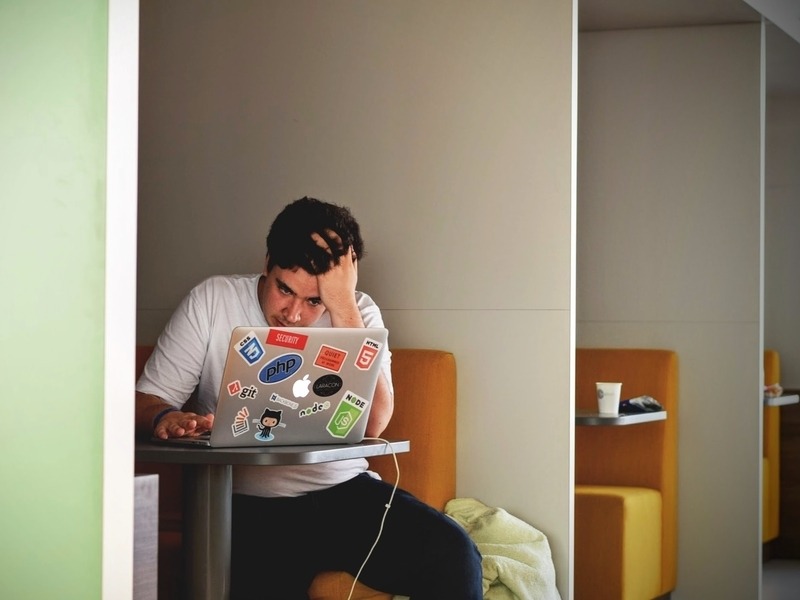Coffee is one of the most common productivity hacks that people use. And we know that coffee – because of its caffeine content – does lead to productivity-enhancing benefits, including increased alertness, better reasoning and cognitive skills, improved focus, and reduced fatigue. But there are various downsides to relying on coffee or overusing it. This article aims to examine the most common side effects of drinking too much coffee.
Dependency
Caffeine dependence is a real condition. It’s known as caffeine use disorder in the fifth edition of the Diagnostic and Statistical Manual of Mental Disorders (DSM-5), which psychiatrists use to diagnose psychiatric conditions. Various studies have indicated that caffeine can produce changes in the body and mind similar to other drugs of dependence.

Like with any dependence, there is a risk of increasing the amount of the drug so you can achieve greater effects. This can lead to tolerance, meaning you need more coffee to get the boost in productivity you’re looking for. The overuse of coffee can lead to unpleasant side effects, including:
- Dizziness
- Diarrhea
- Headache
- Fever
- Increased thirst
- Confusion
- Chest pain
- Irregular or fast heartbeat
Another problem with becoming dependent on caffeine is that you may struggle to be productive without it.
Withdrawals
If you develop a caffeine dependency, then you may experience withdrawal symptoms when you stop drinking coffee. These symptoms can include:
- Headache
- Fatigue
- Anxiety
- Difficulty concentrating
- Low mood
- Irritability
- Low energy
- Tremors
Caffeine withdrawal symptoms can start 12 to 24 hours after your last intake of caffeine and can last two to nine days. So if you go through periods of drinking lots of coffee and then taking breaks from it, you may experience some withdrawal side effects fairly often. These kinds of symptoms, even if they’re mild, can still impact your productivity.
Sleep Issues
Even in moderate doses, caffeine can result in insomnia, making it hard to fall asleep and stay asleep. This is especially true, of course, if you drink coffee later in the day. It’s important to keep in mind that coffee is a stimulant drug, and like all stimulants, in certain doses, it can disrupt normal sleeping patterns. Without good quality sleep, it can be difficult to stay productive throughout the day.

Higher doses of caffeine understandably lead to stronger symptoms of insomnia. This can become more of an issue for you if you develop a caffeine dependence. The result will be a vicious cycle of being deprived of sleep because of caffeine keeping you awake, needing caffeine the next day to combat the tiredness from sleep deprivation, having poor quality sleep again, and so on.
Anxiety
If you’re someone who is prone to anxiety or are going through a period of anxiety due to your circumstances, then the side effects of drinking too much coffee may affect your productivity. We’ve known for decades that even moderate and safe doses of caffeine can increase symptoms of anxiety. In individuals living with an anxiety disorder, caffeine can be a trigger for – or exacerbate – anxiety and panic attacks.

When you feel anxious, it can be incredibly hard to concentrate and get anything done, so if coffee increases anxiety for you, the side effects with hurt your productivity.
Jitters and Restlessness
The “coffee jitters” and restlessness are other common side effects of caffeine. Jitters and restlessness feature a surge in energy, which may sound beneficial, but it’s not when you have too much physical energy and can’t sit still and concentrate on anything. This rush in energy does pass, but it tends to lead to a sudden crush of energy.
While a lower amount of coffee can mitigate these side effects, if you are particularly sensitive to the effects of caffeine, you may still experience these unwanted effects.
As you can see, there are several coffee withdrawal symptoms that can affect your daily life. If you’ve tried boosting your productivity with coffee, and it’s not working for you, there are alternatives that some people prefer. You could drink beverages with lower caffeine content, such as tea, for example. Microdosing is another popular productivity hack that people claim has the benefits of caffeine, minus the feeling of being too stimulated. The important thing is to know that if you’re affected by the side effects of drinking too much coffee, there are other options.
